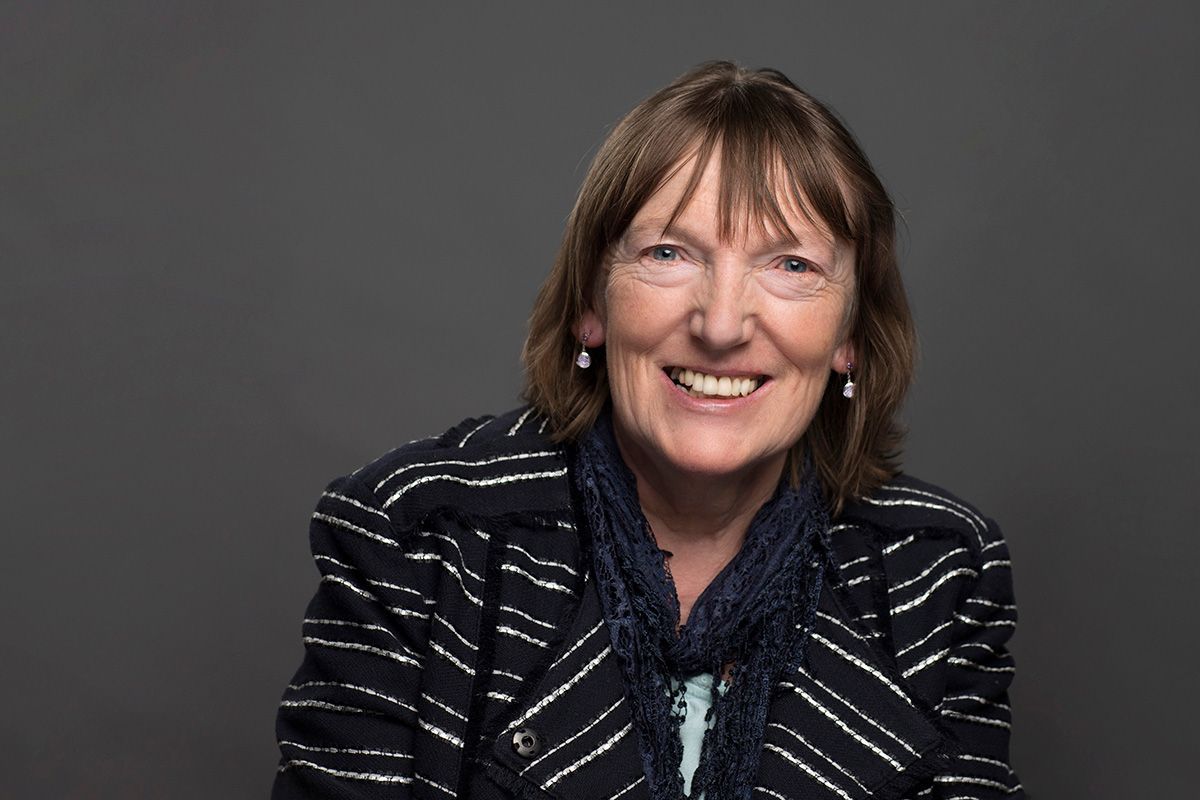Irish history scholars will gather at Quinnipiac University Wednesday through Friday, June 1-3, for “Famine Summer School: Heroes of Black ‘47,” an academic conference to commemorate the 175th anniversary of the worst year of the Great Hunger.
Christine Kinealy, director of Ireland’s Great Hunger Institute at Quinnipiac, will kick off the conference at 5.30 p.m. Wednesday evening, leading a 5K walk in memory of Irish and Ukrainian refugees. The walk will start at the Farmington Canal Trail on Sherman Avenue in Hamden.
Following the walk, attendees are invited to nearby Mikro Depot, Depot Avenue, for a 6.30 p.m. talk by two historians who helped launch Ireland’s National Famine Way, a 100-mile walk from Roscommon to Dublin, recreating the route taken by 1,490 famine refugees in 1847.
The conference will continue June 2 at 9.30 a.m. with the panel discussion, “Ireland and Ukraine: The Past is Not Over,” at the Arnold Bernhard Library at Quinnipiac, 275 Mount Carmel Avenue.
Panelists will include Kinealy, 2022 Irish Echo Irish American of the Year, who will explain how famine is used as a weapon; Joe McDonagh of Hamden, who will discuss “Imaging Famines in Ukraine and Ireland;” and the Rev. Jordan Lenaghan, executive director of university religious life at Quinnipiac, who will talk about his recent humanitarian mission to the Poland-Ukraine border.
Gerard Moran, emeritus professor at Galway University, will deliver the keynote address, “Sending Back Ireland’s Paupers: The Repatriation of the Irish from Britain During the Great Hunger,” at 11 a.m.
After Moran’s talk, Jason King, academic coordinator of the Irish Heritage Trust, which operates the National Famine Museum, Strokestown Park in County Roscommon, will screen “Great Famine Voices,” a series of open house and digital events in the United States, Canada and Great Britain. These events bring together Irish emigrants, their descendants and members of their communities to share family memories and stories of coming from Ireland to North America, especially during the period of the Great Hunger and afterward.
“The Famine Irish in Chicago,” featuring Professor Sean Farrell of Northern Illinois University, also will be screened. In the film, Farrell examines some of the ways that famine Irish emigrants helped build modern Chicago and Illinois in the 1840s and 1850s.
The conference will then move to the Blessed Michael McGivney Pilgrimage Center, 1 State Street, New Haven, for “Nothing Kills Like Hunger,” a presentation by Kirk Prichard, vice president of programs for Concern U.S. His talk starts at 3.30 p.m.
Prichard, according to a release, is responsible for Concern U.S.-funded programs and policy, a portfolio totaling more than $60 million that operates in more than 18 countries and reaches over 8 million people.
On June 3, the conference will shift to the Center for Religion at Quinnipiac, where experts will participate in a 10 a.m. roundtable discussion on “Heroes of Ireland’s Great Hunger.”
The conference will conclude with a reception to launch Professor Kinealy’s latest two books, “Heroes of Ireland’s Great Hunger” and “More Heroes of Ireland’s Great Hunger.”
Added the release: "Ireland's Great Hunger Institute at Quinnipiac is a scholarly resource for the study of the Great Hunger, also known as An Gorta Mór. Through a strategic program of lectures, conferences, course offerings and publications, the institute fosters a deeper understanding of this tragedy and its causes and consequences. To encourage original scholarship and meaningful engagement, the institute develops and maintains the Great Hunger Collection, a unique array of primary, secondary and cultural sources available to students and scholars."
All events are free, but donations on behalf of Ukraine are welcome. To register, contact Celeste Valentino, administrative assistant at the Albert Schweitzer Institute, at Celeste.Valentino@qu.edu.









